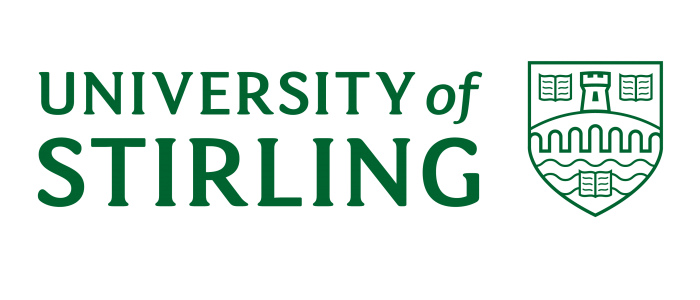Student Nurses Support Our Response To Covid-19
Almost 400 student nurses – and up to nine staff – from the University of Stirling are joining healthcare workers on the frontline in the battle against coronavirus (COVID-19).
As part of the emergency response, the UK and Scottish Governments have called upon all student nurses – apart from those in first year – to support the national effort by choosing to fulfil their next placement as a paid member of NHS staff.
So far, 396 student nurses from Stirling have volunteered for the initiative, which will see them continue to work towards their degrees as planned, while gaining valuable experience on the frontline and providing vital support to NHS colleagues. That number is expected to increase further in the coming days. In addition, nine members of clinically trained University staff are in discussions with the NHS, with a view to returning to provide support.
Professor Jayne Donaldson, Dean of the Faculty of Health Sciences and Sport at the University of Stirling, said: “Coronavirus poses a monumental challenge to our healthcare systems here in the UK and across the world – as hospitals, GP surgeries, pharmacies, and care homes face unprecedented demands and pressures.
“I am very proud that our dedicated and talented army of student nurses, alongside staff from the University, have stepped forward to support the national effort.
“Our students can take confidence from the training and skills that they’ve learned and honed during their time at Stirling – and I know that they will make a real difference to the coronavirus response and play an important role in ensuring the health and wellbeing of patients.
“I know our entire University community will join me in thanking our students and staff for their phenomenal response – and wish them all the best as they join the frontline in the coming weeks.”
Scotland’s Chief Nursing Officer Fiona McQueen said: “I want to thank each and every student who has volunteered their support so far. The response we have received shows the incredible spirit of our future NHS workforce – your dedication is truly inspirational.”
 Professor Angela Wallace, Director of Nursing, NHS Forth Valley, said: “We really appreciate the support of our student colleagues at this challenging time and I know that they will receive a very warm welcome from nursing and midwifery staff across NHS Forth Valley. Students make a fantastic contribution to local healthcare and we will ensure they receive the guidance and support they require to help us care for patients and their families.”
Professor Angela Wallace, Director of Nursing, NHS Forth Valley, said: “We really appreciate the support of our student colleagues at this challenging time and I know that they will receive a very warm welcome from nursing and midwifery staff across NHS Forth Valley. Students make a fantastic contribution to local healthcare and we will ensure they receive the guidance and support they require to help us care for patients and their families.”
Students responding to the call
So far, across Scotland, around 12,000 students and returners from health and social care have come forward to offer their skills and expertise during the pandemic.
The student placements – due to begin in the coming weeks – are supported through changes in legislation and emergency standards introduced by the Nursing and Midwifery Council, allowing greater flexibility to be applied to the delivery of nursing and midwifery programmes.
At Stirling, the Faculty of Health Sciences and Sport, Student Support Services, and Stirling Students’ Union will ensure that student nurses are robustly supported throughout their time on the frontline. Students will have access to a wide range of services, including: counselling and wellbeing support, mental health advisers, money advice and hardship funds, and the newly-launched #BeConnected programme – designed to help students and staff maintain a sense of community during the pandemic.
Nicola Phillips, a mother-of-two, served in the Army before opting to study Adult Nursing at Stirling. She is now in her second year and is driven to support her NHS colleagues during this pandemic.
She said: “It was quite a simple decision for me: People are ill; the NHS needs nurses and doctors; I am training to be a nurse and have skills that could help. I wouldn’t be able to just sit at home.”
For the duration of her next placement, Ms Phillips will join NHS Forth Valley and will work alongside those nurses who have guided her through her previous placements. She continued: “I do feel some anxiety about my decision to help, especially as I have a family, but I don’t really think about fear. I am just desperate to go out there and help – that overrides my anxiety.
“I will be supporting the nurses in whatever way I can and will be gaining valuable experience at the same time. Some of the nurses I’ll be working with have guided and mentored me through my journey so far – so it’s only natural that I want give back and help them too.”
Keeley Long, from Galway in Ireland, is a third-year Adult Nursing student at Stirling and has volunteered to support the COVID-19 response.
She said: “I have seen, first-hand, the need for many students to support this effort. I wanted to help the patients because they are probably feeling very scared and alone.
“I feel nervous about moving to frontline care – but I’m also excited to start. From a learning perspective, this is one of the best times to be a student nurse – we will experience different circumstances that will stick with us throughout our careers.”
Staff returning to frontline care
The University is supporting clinically trained members of staff who wish to return, on secondment, to roles as nurses, midwives, social workers or paramedics, and those keen to volunteer in other ways, such as through the British Red Cross or Volunteer Scotland.
Fiona Smith, Senior Lecturer in Acute Nursing and Faculty Lead for Clinical Skills and Simulation, teaches all aspects of acute care nursing at Stirling – including advanced life support. Her last role in clinical care was in the intensive therapy unit at Edinburgh Royal Infirmary. She left there to pursue a career in education in November 2003 and has worked at the University of Stirling since August 2017 – but hopes to return to clinical practice in the coming weeks, to support the NHS.
She said: “My passion for nursing has never left me – it simply refocused to allow me to educate and support the next generation of nurses. At this time of need, there was no doubt in my mind that returning to help frontline care, in any way that I can, was the natural thing to do. It hasn’t yet been confirmed where I will be posted – but I would anticipate a return to the intensive therapy unit, given my clinical background.”
She added: “It is fantastic that the University is supporting our return to clinical practice at such an important time. I am looking forward to being back – but naturally a bit nervous. NHS Forth Valley and our other clinical partners have done so much to support our students over the years; it is a privilege for me to be able to support them now in a clinical capacity.”





